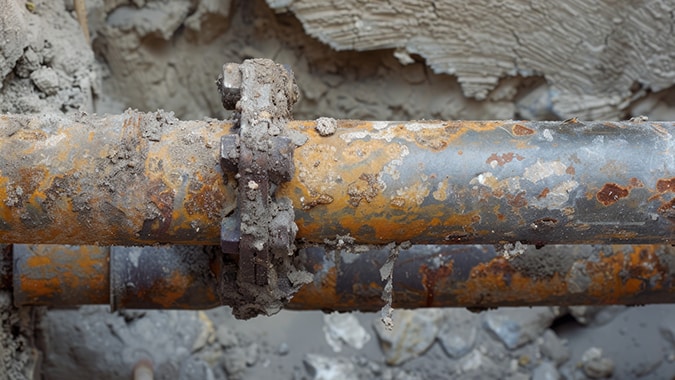The state is urging residents and businesses to respond to any notices they receive from their water company in the coming weeks that indicate it has been unable to determine if the pipes servicing the property are made from lead or galvanized iron or steel and need to be replaced.
Property owners who receive an “Unknown Service Line” notice should follow the directions on how to proceed. Customers may be directed to contact the water system for an inspection appointment or given instructions on how to self-identify service line material and report back to the water provider.
Pipes made of plastic or copper do not need to be replaced, however, those made of lead or galvanized steel or iron (which can contribute to lead in drinking water) must be replaced because lead is associated with adverse health impacts, even at low levels, particularly in infants and children. Property owners may be responsible for the cost of replacing the portion of the service line that is on their property (between the building and curb stop) and should seek more information from their water company.
Under recent amendments to the New Jersey Safe Drinking Water Act, public community water systems must identify and replace all lead and galvanized service lines in their service areas by 2031. While recent inventories have identified approximately 143,000 lead service lines that are being prioritized for replacement, there are still more than 1 million residences and businesses that have a service line that their water system has identified as being composed of unknown material.
Residents with known lead and galvanized service lines have been receiving notices since 2022. All public community water systems must directly notify residents by Nov. 15, 2024, if they do not have records of what service line material serves their home or business.
“Through this effort, New Jersey continues to pave the way for the nation in protecting the public from the harmful effects of lead in drinking water,” Department of Environmental Protection Commissioner Shawn M. LaTourette said. “The public’s response to these letters is critical to the success of evaluation and replacement of these lines for protection of public health.”
New Jersey American Water, the state’s largest water company serving 3 million residents, expects to send out letters beginning in October, according to DEP.
Property owners are urged to read official the official notifications from their water system and to not throw them out or confuse them with private solicitations for water service line protection programs.
For more information about lead or galvanized service lines and what property owners should do if their water company sends them a notice of unknown material service line, go to DEP’s website here.




